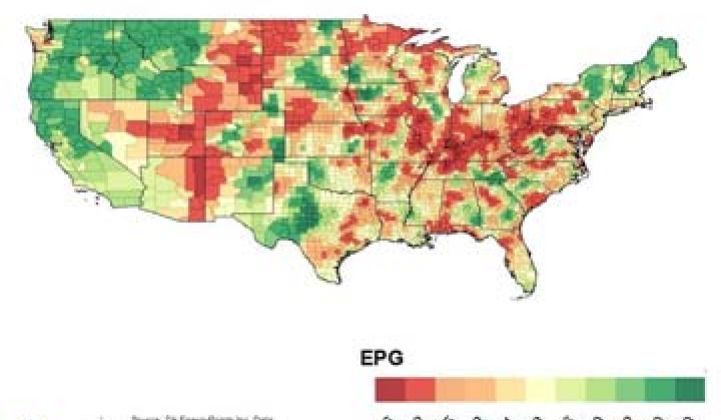When Ory Zik was the CEO of HelioFocus, he had trouble finding a simple metric to use to tell people about the efficiency of the company’s solar system taking into account the entire resource chain compared to other sources of energy.
To fill what he saw as a gap in the corporate sustainability industry, Zik founded Energy Points, which recently closed $3 million in Series A financing led by Plan B Ventures to launch what the company is calling the first universal metric for measuring sustainability.
“The problem is when we think about sustainability, people don’t have any quantitative way to think about it,” said Zik. “We’re lacking the Weight Watchers points for sustainability.”
Of course, there are already a variety of models and programs that produce sustainability ratings for energy and water use. Companies like SAP, IBM and IHS have sophisticated offerings that can track carbon emissions, energy or water efficiency and ultimately dollar savings when a company makes changes related to its business processes or infrastructure.
But in the boardroom, Zik said that it’s simply not enough. Most people, including CEOs, can’t really wrap their head around a ton of CO2 or kilowatt-hours, just as many people choose Weight Watchers points for its simplicity over calorie-counting.
Additionally, the price of electricity often does not accurately reflect other factors, such as if the energy comes from renewables or fossil fuels. The true price of water is often not reflected in the cost to customers, said Zik. He noted that people in Massachusetts often pay more than those in water-constrained New Mexico.
The result is a rich data set that boils every aspect of sustainability, from electricity and water to transportation, into a single common measurement: the equivalent of the energy embodied in a gallon of gasoline.
The Energy Points cloud-based platform not only takes into account regional variations, but also time differences. For water, it’s wet versus dry season; for electricity, peak versus off-peak.
The solution, which is being piloted with some Fortune 500 companies and government institutions, is not meant to usurp sustainability software that a company is already using. Instead, it’s meant to be an add-on that sustainability officers can use to make the case for improvements to other executives. “The higher value is not in reporting but in decisions,” said Zik. “What we allow them is quantification of different projects.”
Energy Points is in talks with software companies to integrate its offerings into the sustainability platforms. Rather than being an engine for compliance or cost reduction, Zik sees the value of Energy Points in the branding side of sustainability.
“Coca-Cola wants to save water not because it’s too expensive, but because of branding,” he noted. “What we do is give companies the right context to brand it properly.”
Currently, the company sells the software-as-service on a per-transaction basis. Energy Points has data across the globe, but Zik admits there is a huge difference in the availability of information in the U.S. and Western Europe versus other locations like China or the Pacific Rim.
As the data sets continue to be filled in internationally, Zik hopes the platform could not just help companies meet sustainability goals but inform new business ventures, such as where to locate manufacturing or how different decisions could be conveyed to shareholders and the public.



